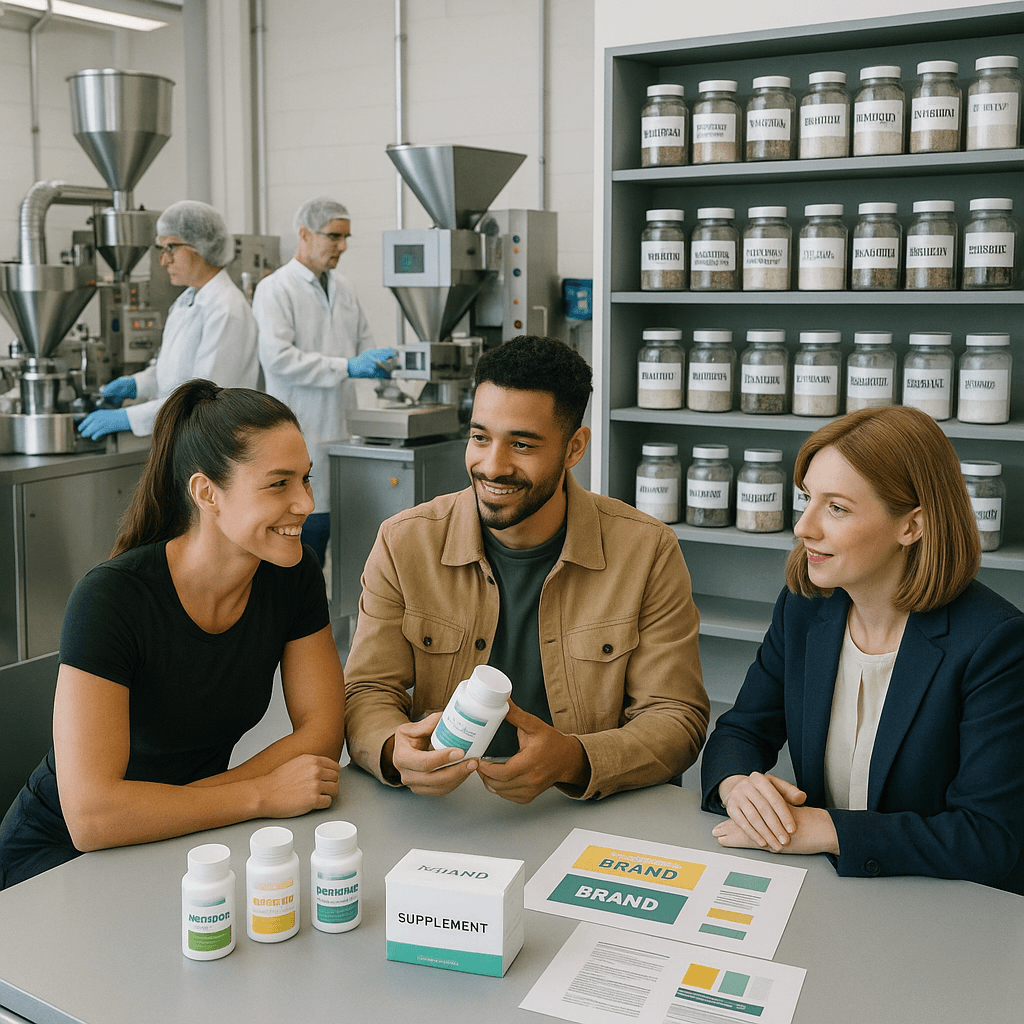The Rise of Low-MOQ Supplement Manufacturing in Europe: Built for Trend-Driven Launches
Launching a supplement brand in Europe used to mean high upfront costs, long timelines, and huge inventory risk. Not anymore. In 2025, low-MOQ (Minimum Order Quantity) manufacturing is unlocking a new era for agile, niche-focused wellness brands — and Europe is leading the shift.
Whether you're a health retailer, influencer, or entrepreneur, small-batch production is making it easier than ever to enter the market, test ideas, and scale quickly without overcommitting.
Here’s why low-MOQ is on the rise — and how smart brands are using it to stay lean, relevant, and profitable.
1. What Low-MOQ Means — and Why It Matters
Low-MOQ manufacturing allows brands to produce in small quantities — often between 500 and 2,000 units — compared to traditional minimums of 10,000 or more.
This makes it ideal for:
-
Fast trend testing
-
Limited or seasonal drops
-
Targeted products for niche audiences
-
Creator-led launches that move quickly
It’s a lower-risk path to validate ideas, collect data, and invest only in what sells.
2. Europe Is at the Forefront
Europe’s supplement market is more regulated — and more sophisticated. Low-MOQ models fit perfectly into this environment, offering flexibility without sacrificing quality or compliance.
Forward-thinking manufacturers in Germany, the Netherlands, the UK, and the Nordics now provide:
-
Capsule, powder, and gummy production in small batches
-
White-label and formulation support
-
EFSA-compliant label guidance
-
Custom flavoring and packaging options with minimal order requirements
This gives small brands access to premium-quality production without massive startup costs.
3. It’s Built for Fast, Trend-Driven Launches
Speed is everything when wellness trends shift fast. Low-MOQ manufacturing lets brands act on momentum — not miss it.
You can quickly:
-
Launch a nootropic bar for focus
-
Test an adaptogen blend tied to rising stress trends
-
Drop a seasonal collagen gummy
-
Ride a TikTok wave with chlorophyll drops or PMS support formulas
Brands that move first can set the tone — and define the trend.
4. It Reduces Risk for Startups and Creators
Not every idea hits. Smaller runs allow you to experiment without overextending — critical for startups, solo founders, and wellness retailers building in-house lines.
Perfect for:
-
Personal brands and micro-creators
-
Niche health collectives
-
Retailers or gyms testing own-label offerings
-
Clinics and spas building wellness extensions
Instead of committing to 10,000 units, you can start with 500 — and scale only when it’s proven.
5. It Aligns with Sustainable, Lean Models
Low-MOQ production supports cleaner, smarter business operations. It helps reduce waste, prevent overproduction, and support more sustainable packaging decisions.
It works seamlessly with:
-
Just-in-time inventory
-
Subscription or pre-order models
-
DTC-only or localized launches
Eco-conscious founders are pairing it with compostable pouches, glass bottles, and minimalist packaging to reduce footprint while maintaining impact.
6. It Enables Format and Formulation Innovation
Small-batch manufacturing isn’t limited to capsules anymore. Today’s facilities offer low-MOQ runs for formats that appeal to younger, lifestyle-focused buyers.
This includes:
-
Functional gummies
-
Stick packs for energy, hydration, or sleep
-
Liquid tinctures
-
Snack bars and functional food blends
Now, wellness brands can experiment across formats that fit real routines — not just supplement shelves.
7. It Supports “Drop Culture” and Built-in Scarcity
Limited production creates natural demand. Like fashion and beauty brands, wellness companies are now embracing drop culture: short runs, quick sellouts, and high engagement.
Think:
-
“Only 1,000 units available”
-
“New release this Friday — join the waitlist”
-
“First-come, first-serve on our nootropic sleep blend”
It builds buzz, reduces holding costs, and creates real-time feedback loops — all without sitting on thousands of units.
Final Thoughts
Low-MOQ supplement manufacturing is reshaping how products get built in Europe. It’s giving smaller brands the tools to launch faster, smarter, and with less risk — while staying compliant and delivering quality.
You don’t need big budgets or massive inventory to make a mark in 2025. You need the right idea, the right partner, and the ability to move fast when the opportunity strikes.
This isn’t just a manufacturing shift. It’s a brand-building advantage — and it’s changing who gets to win in wellness.





